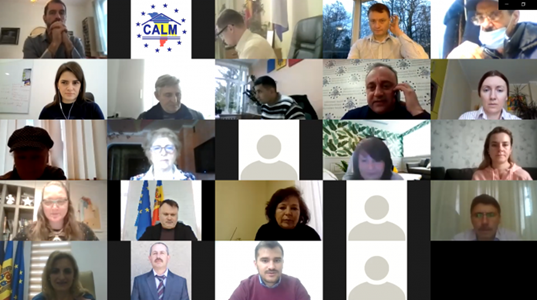
by: Viorel Furdui, Executive Director of Congress of Local Authorities from Moldova (CALM)
1. Introduction
Until September-October 2022, the general perception regarding the implementation of local public administration reform was rather uncertain, and local democracy did not seem to be a priority for the Government. In support of this statement can be mentioned: fragmented dialogue, approaches to identifying solutions for the systemic problems were almost missing, there was a lack of effective communication with central public administration, lack of clarity regarding decentralization reform measure; elaboration of the public administration reform concept/strategy was initiated without consulting CALM. Government paid excessive attention to international experts, practically neglecting the opinion of national interested parties and representative associations, including CALM.
2. Current situation (basic progresses)
Positive developments were taking place since September 2022 until now and particularly
a) Situation has changed regarding the central public administration – CALM/LAs dialogue. After 5 years of inactivity, Parity Commission was reinstated in its new composition, the status of its co-president from CALM was accepted and sectorial working groups were created in order to strengthen the dialogue and establish the necessary actions to produce important reforms in key for local authorities’ sectors. During these meetings, several important decisions were agreed in the field of fiscal policy, remuneration, public procurement, etc. Regarding Parity Commission and working groups created under it, CALM believes that this is quite important and long awaited measure for initializing the actions that would boost sectorial decentralization reforms and establishing competencies of local authorities, including with regard to the territorial optimization reform and, above all, of the 2nd tier local public administration optimization.
b) Consolidation of local financial and patrimonial autonomy (measures in 2022-2023)
Fiscal policy approved for 2022 and 2023 aims at several very important measures of fiscal decentralization and consolidation of local financial autonomy, for a long time advocated by CALM. Among them: liberalization (removal of ceilings) for real estate and land tax, sharing with local authorities of the first tier tax on natural resources, doubling the resources for road maintenance by transferring 100% of the road tax (from 50%) to the first-tier local budgets, changing destination of transfers for the road tax, from the one with special destination to the one with general destination, was approved the right for LAs to increase salaries in local public administration by up to 40%, from their own revenues according to their fiscal and administrative capacity, legal framework in the field of aquatic/natural water resources property was approved, which clarifies and strengthens role of LAs in management of natural water resources and provides to LAs the right to benefit from the revenues from economic activities following exploitation of these resources/properties; law on inter-municipal associations was approved, the legal framework was approved raising ceilings for low-value public procurements necessary for tender procedures, including regulation of low-value public procurements was adopted
3. Current situation (current problems)
Despite all the progress mentioned above, there are still important problems to be solved: the strategy of public administration reform, is too complex, too long-term (until 2030) beyond the mandate of the current Government and Parliament and contradicts to the conclusions of last monitoring report of the CLRACE on the Republic of Moldova (2019); mentioned above positive developments under the Fiscal policy were jeopardized with putting the burden of centralized remuneration decisions and costs of extremely high inflation on the shoulders of local authorities; transfers for local authorities remain at the level of 2020, not indexed, regardless of the huge inflation (30-35%). Certain concern arises at the moment about the lack of certainty and vision/will to advance discussions on financial decentralization. In this sense, CALM came up with proposals to revise the status/rates, place of collection and destination, depending on case by case basis of different taxes and transfers – Corporate Income Tax (CIT), Personal Income Tax (PIT), revision/indexing of the formula for general transfers, etc. As a major problem remains the issue of LAs personnel and motivation/salaries of LAs employees. Another field where significant gaps persist is the process of registration, delimitation and evaluation of public and private property. Relations between the city of Chisinau and the Government remain largely political or, rather, politicized. Important problem is the control over LAs activities and the actions of certain administrative and financial control bodies. During the last period of time, there were certain signals from LAs regarding the actions of the Agency of integrity, of financial inspection, of the Court of Accounts and of the other central institutions/agencies with control and supervision powers, which interpret and apply the law in exaggerated manner, thus creating impediments and insecurity in LAs activities. Also to mention certain signals from more LAs representatives about the pressures against local elected officials in 2023, local elections year. Even if these pressures represent more or less isolated cases and cannot be compared at the moment with the extent and depth of the pressures during the period 2017-2018, condemned by Congress in its resolutions, however such attempts are alarming and their number can increase during this electoral year.
Therefore, it seems that the next period will be a decisive one in strengthening local democracy, while the Government will have to demonstrate through concrete actions, its openness and its will to implement the Road Map and its commitments in the appropriate way in partnership with CALM and with the Council of Europe.